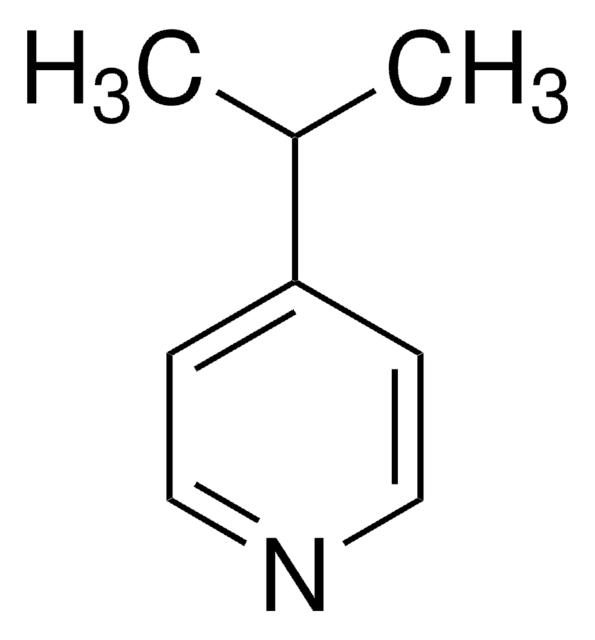W320218
Methyl 2-pyrrolyl ketone
≥98%, FG
Synonyme(s) :
2-Acetylpyrrole, Methyl 2-pyrrolyl ketone
About This Item
Produits recommandés
Source biologique
synthetic
Niveau de qualité
Qualité
FG
Fragrance grade
Halal
Kosher
Agence
follows IFRA guidelines
meets purity specifications of JECFA
Conformité réglementaire
EU Regulation 1223/2009
EU Regulation 1334/2008 & 178/2002
Pureté
≥98%
Point d'ébullition
220 °C (lit.)
Pf
88-93 °C (lit.)
Application(s)
flavors and fragrances
Documentation
see Safety & Documentation for available documents
Allergène alimentaire
no known allergens
Allergène de parfum
no known allergens
Propriétés organoleptiques
bread; coumarin; licorice; musty; nutty; walnut
Chaîne SMILES
CC(=O)c1ccc[nH]1
InChI
1S/C6H7NO/c1-5(8)6-3-2-4-7-6/h2-4,7H,1H3
Clé InChI
IGJQUJNPMOYEJY-UHFFFAOYSA-N
Vous recherchez des produits similaires ? Visite Guide de comparaison des produits
Catégories apparentées
Application
- RIFM fragrance ingredient safety assessment, methyl 2-pyrrolyl ketone, CAS Registry Number 1072-83-9.: This research presents a safety assessment of methyl 2-pyrrolyl ketone for its use in fragrances, highlighting its toxicological profile and regulatory considerations (Api AM, Belsito D, Botelho D, et al., 2024, Api et al., 2024).
Code de la classe de stockage
13 - Non Combustible Solids
Classe de danger pour l'eau (WGK)
WGK 3
Équipement de protection individuelle
dust mask type N95 (US), Eyeshields, Gloves
Faites votre choix parmi les versions les plus récentes :
Déjà en possession de ce produit ?
Retrouvez la documentation relative aux produits que vous avez récemment achetés dans la Bibliothèque de documents.
Les clients ont également consulté
Notre équipe de scientifiques dispose d'une expérience dans tous les secteurs de la recherche, notamment en sciences de la vie, science des matériaux, synthèse chimique, chromatographie, analyse et dans de nombreux autres domaines..
Contacter notre Service technique












